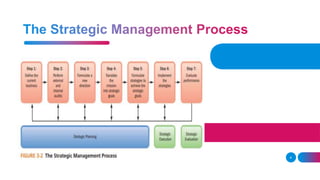How to Be More Eco-Friendly With Electricity
We may say and act like we are environmentally conscious but truly, are we? We can save aluminum cans, recycle paper and plastics, use bio-degradable materials and we can conserve electricity just to name a few eco-friendly examples. Sounds great except for the part about saving electricity. Over 5% of all electricity consumed by Americans is wasted and that figure may go up two or three times that amount by 2010 according to estimates from the US Department of Energy.
If the United States is more environmentally aware than ever taking efforts to utilize green resources as a clean alternative to fossil fuels and other limited “dirty energy” sources like electricity, than how can we be so wasteful? The answer is painfully simple and obvious but overlooked by most Americans every day. A few basic adjustments in our daily routines combined with simple awareness would greatly reduce our daily waste of electrical power.
So what is cause of this wasteful practice? It is our use and dependence upon electronics in our daily lives. It is not the use that is so wasteful but the answer lies in the non-use of all of our electronic gadgets. You see even when our cell phones, DVD players, televisions, stereos, and other electronic devices remain in “off” mode they continue to draw small amounts of power as long as they remain plugged in to a power source. All of these electronic devices and many others do not turn off or power down while at rest, they remain in standby mode ready for the next use.
Over time this small amount of wasted standby power begins to add up significantly. Probably the most common example comes from our dependence of cell phones. Even when a phone is at full charge or when the phone is disconnected from the charger, the charger itself will continue to use electricity as long as it remains plugged into your wall socket. Of course the answer is obvious, when not charging your phone conserve electricity by unplugging your charger from the wall.
Some electronics will continue to draw 30 or 40 watts while not in use. The biggest energy drains comes from old appliances. If you are still using a dated refrigerator from 10-15 years ago, that antique requires three times more energy to operate than a modern energy efficient refrigerator of the same size. Washing machines and hot water heaters that are old are not doing you any favors either when it comes to electricity conservation. Now solar power technologies can be utilized as a method of heating water within your home and many incentives to convert to a solar powered system are available. Outdoor garden lighting also does not require electricity as there are many solar landscape lights available on the market. For major appliances you may want to consider an upgrade to energy star models in the near future.
There are many simple steps and practices that we can use to promote energy conservation within our daily lives. Washing your clothes strictly in cold water and insuring proper insulation of your hot water heater are a couple of examples. If you are considering a new refrigerator, models with a top or bottom freezer compartment use up to 15% less energy than a side by side model. Also, you can skip the dry cycle on your dishwasher and turn off ceiling fans when you are gone. Unplug appliances where applicable such as the coffee maker and of course the cell phone chargers, toasters, TV, and any other electronics within reach. Everybody knows the curly fluorescent light bulbs are much more energy efficient than the traditional incandescent bulbs that are being phased out all together.


